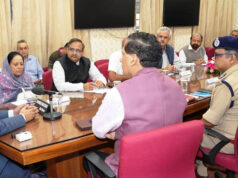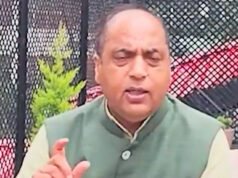Shimla: The Bharatiya Janata Party (BJP) has expressed strong support for the Waqf (Amendment) Bill, 2024, which aims to introduce significant reforms in the functioning of Waqf Boards across India. BJP State General Secretary Bihari Lal Sharma has highlighted the bill’s primary focus on enhancing accountability and transparency in the management of Waqf properties, an issue that has been a subject of concern in recent years due to alleged misuse and disputes.
Sharma emphasized that the bill is a crucial step in the ongoing era of reform in the country. “We support the Waqf (Amendment) Bill, 2024. This is an era of reform in India, where the winds of long-term change are blowing at high speed, allowing us to make up for missed opportunities from the past,” Sharma said. He noted that the bill seeks to amend the Waqf Act, 1995, and introduce key measures to address concerns about the extensive powers held by Waqf Boards.
A central feature of the proposed amendments is the mandatory verification process for all property claims made by Waqf Boards. This verification is intended to prevent the wrongful classification of properties as Waqf without thorough scrutiny, which has been a major cause of disputes. Sharma noted that this step would enhance public trust in the system, reducing the chances of corruption.
“The introduction of mandatory verification for Waqf Boards will ensure that all property claims are subject to proper scrutiny, thereby increasing transparency and preventing potential misuse,” he added. This reform is expected to address concerns raised over the years about Waqf Boards declaring vast tracts of land as Waqf property, often leading to disputes with landowners and other stakeholders.
In addition to property verification, the bill also proposes amendments to Sections 9 and 14 of the Waqf Act, 1995, to promote gender diversity in the composition and functioning of Waqf Boards. By ensuring greater female representation in decision-making roles, the government aims to make the management of Waqf properties more inclusive and representative of all stakeholders.
“This amendment will ensure that women have a greater say in the management of Waqf properties, promoting inclusivity and addressing the interests of all sections of society,” said Sharma. The inclusion of women in key roles is seen as a step towards modernizing the governance of Waqf Boards, which have historically been male-dominated.
Another important amendment introduced by the bill is the revision of the verification process for Waqf properties. The government aims to reduce the number of disputes related to Waqf properties by ensuring stricter scrutiny and, in some cases, involving district magistrates in the verification process. This is expected to resolve long-standing issues regarding the misuse and mismanagement of Waqf properties.
“The stronger verification processes will reduce disputes and help ensure that Waqf properties are used for their intended purposes, whether for religious or charitable work,” Sharma stated.
The Waqf (Amendment) Bill, 2024, comes in response to growing concerns about the unchecked powers of Waqf Boards. In recent years, several instances have surfaced where Waqf Boards claimed extensive lands as Waqf property, sparking legal disputes and raising allegations of misuse. By introducing these reforms, the government seeks to restore balance, ensure proper management, and prevent the misuse of Waqf assets.
Sharma reaffirmed the BJP’s backing for the bill, stressing that the proposed amendments are crucial for addressing long-standing issues and creating a more transparent and accountable system for managing Waqf properties across the country. The bill is seen as part of a broader reform movement aimed at modernizing governance structures and addressing inefficiencies in various sectors.
With the introduction of the Waqf (Amendment) Bill, 2024, the government hopes to close loopholes in the current system and promote better management of Waqf properties, ensuring they are used for their intended purposes and benefit the communities they were meant to serve.











